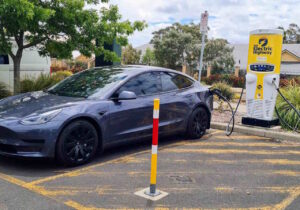
In a significant leap towards a sustainable future, global sales of electric vehicles (EVs) have surged by 40% in the first three quarters of 2023, according to the latest industry reports. This remarkable growth is largely driven by increased consumer awareness, government incentives, and technological advancements. The surge has been most pronounced in regions like Europe, China, and North America, where policies are increasingly favoring green transportation.
The announcement comes as countries worldwide intensify their efforts to combat climate change by reducing carbon emissions. The transition to electric vehicles is seen as a pivotal strategy in this global initiative. In particular, China and the European Union have set ambitious targets to phase out internal combustion engines in favor of electric alternatives by 2035.
Government Incentives and Policy Shifts
Governments across the globe are playing a crucial role in this transition by offering substantial incentives to both manufacturers and consumers. These incentives include tax rebates, subsidies, and investments in charging infrastructure. The United States, for example, has introduced a federal tax credit of up to $7,500 for EV buyers, a move that has significantly boosted sales.
Meanwhile, the European Union has implemented stringent emissions regulations, compelling automakers to accelerate their shift towards electric models. The EU’s Green Deal aims to make the continent carbon-neutral by 2050, with transportation being a key focus area.
Technological Advancements Fueling Growth
Technological advancements have also played a vital role in the growing popularity of electric vehicles. Improvements in battery technology have led to longer ranges and shorter charging times, addressing two of the main concerns consumers have had about EVs. Companies like Tesla, Nissan, and Volkswagen are at the forefront of these innovations, continuously pushing the boundaries of what electric vehicles can achieve.
According to a recent report by BloombergNEF, “The cost of lithium-ion batteries has fallen by 89% over the past decade, making electric vehicles more affordable than ever.”
Challenges and Opportunities Ahead
Despite the positive momentum, the electric vehicle industry faces several challenges. The availability of raw materials for battery production, such as lithium and cobalt, remains a significant concern. Additionally, the development of adequate charging infrastructure is crucial to support the growing number of EVs on the road.
However, these challenges also present opportunities. The demand for sustainable mining practices and recycling technologies is on the rise, prompting innovations in these sectors. Furthermore, as more countries invest in renewable energy sources, the environmental benefits of electric vehicles are expected to increase.
Expert Opinions and Industry Insights
Industry experts are optimistic about the future of electric vehicles. According to Dr. Emily Carter, an energy policy analyst, “The transition to electric vehicles is not just a trend; it’s a necessary shift. The environmental and economic benefits are substantial, and as technology continues to improve, we can expect even greater adoption rates.”
By the Numbers: “In 2022, EVs accounted for 10% of global car sales. This figure is expected to rise to 30% by 2030, according to the International Energy Agency.”
Looking Forward
The move towards electric vehicles represents a significant step in the global effort to mitigate climate change. As nations continue to adopt policies that favor sustainable transportation, the momentum is likely to accelerate. Automakers are investing heavily in research and development, ensuring that the next generation of electric vehicles will be more efficient, affordable, and accessible.
As the world navigates the challenges of climate change, the rise of electric vehicles offers a promising path forward. With continued support from governments, industry leaders, and consumers, the future of transportation looks increasingly electric.







